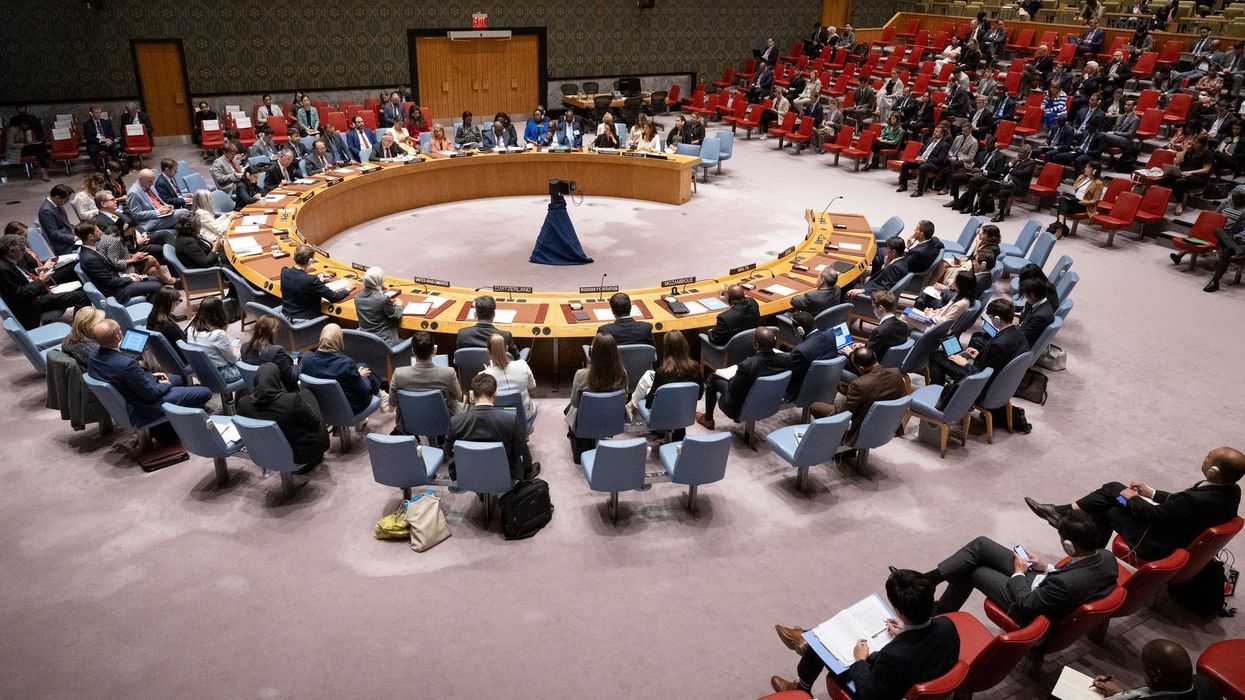Anderson is president of Pivotal Ventures, an investment and incubation company founded by Melinda French Gates to advance social progress. She has served as a U.S. ambassador at the United Nations.
Before I became the president of Pivotal Ventures, I spent most of my career in national security. In my roles at the United Nations, the White House and the State Department, I had the chance to work on big, audacious challenges with teams I deeply respected and admired. But as much as I valued my colleagues, I was also conscious of who was missing from the rooms where decisions were made. It was not unusual over my long career to find myself the only woman in the room — or one of only a few.
Unfortunately, women’s underrepresentation in those rooms probably made us less effective. Research makes clear that peace agreements are longer-lasting and more durable when women help make them.
We are missing opportunities across many other aspects of American life, too. Women hold less than one-third of the jobs in the technical workforce, about one-third of elected offices, and approximately one-sixth of check-writing positions in venture capital — and in every case, women of color are even more underrepresented than white women.
In other words, the power centers that will do the most to determine the future are mired in the past. If women were proportionately represented in these areas, our technology would be more innovative, our politics would engage a whole new range of issues, and our companies would serve the needs of many more customers.
That’s why, at Pivotal, we see expanding women’s power and influence not as a single issue but rather as a prerequisite to progress on more or less every issue. We believe dismantling barriers to equality for women of all backgrounds will spark widespread social progress. And if equal representation benefits everyone, then it means that there are a lot of potential allies for our work, including people who don’t currently think of themselves as advocates for women.
Last summer, at the Summit on Resilient and Enduring Democracy, our team joined other donors who care deeply about protecting our political system in these polarizing times. Ultimately, we can't have a thriving, healthy, active democracy if we don't have equal representation. And, if we don't have a democracy that is fair, transparent, and welcoming, it's going to be harder and harder for women to participate fully. Women need the democracy movement, and the democracy movement needs women. We’re now convening regularly with the Democracy Funders Network to support a broad-based movement built on shared priorities such as combating dis- and misinformation and protecting the safety of candidates, election workers, and officeholders.
Similarly, partners in our caregiving portfolio are helping to roll out the historic provision in the 2023 federal CHIPS and Science Act that requires employers who receive funding under the act to provide child care to their workers. Plenty of people who don’t think of themselves as champions for women’s rights endorse child care for other reasons — for instance, because they want to promote economic growth. Indeed, equality and economic growth go hand in hand, and when advocates for both priorities work together to implement an important policy, that’s success.
Finally, we recently celebrated the fifth anniversary of Reboot Representation, a coalition of tech companies created in 2018 to double the number of Black, Latina, and Native American women receiving computing degrees by 2025. These companies are in the business of developing and selling technologies, not promoting social justice, but they know that more-diverse engineering talent is better for their long-term prospects. Reboot includes Google and Microsoft, Dell and HP — a lot of companies that compete against each other — so our value-add, besides modest operational funding, was to provide a neutral venue to help them come together. Now they’re sharing data, discovering best practices, and investing millions of dollars in programming. Reboot’s goal is on track, and the tech industry is a few steps closer to reflecting the people who use its products and services.
I’m not exactly breaking new ground by calling for holistic thinking and creative collaborations, but as social-change grant makers and nonprofits, we’re working against perverse incentives, resource scarcity, zero-sum thinking, and other traps that make it hard to build partnerships. These examples help me imagine what’s possible if more of us resolved to share ideas, forge stronger links, and merge agendas.
Ruth Bader Ginsburg was onto something when she said, “Women belong in all the places where decisions are being made.” They belong there, and we need them there. Whether it’s national security, technology, politics, finance ... you name it, decisions made in rooms that matter are smarter and better when women help make them.
This article was originally published in The Commons.



















Trump & Hegseth gave Mark Kelly a huge 2028 gift